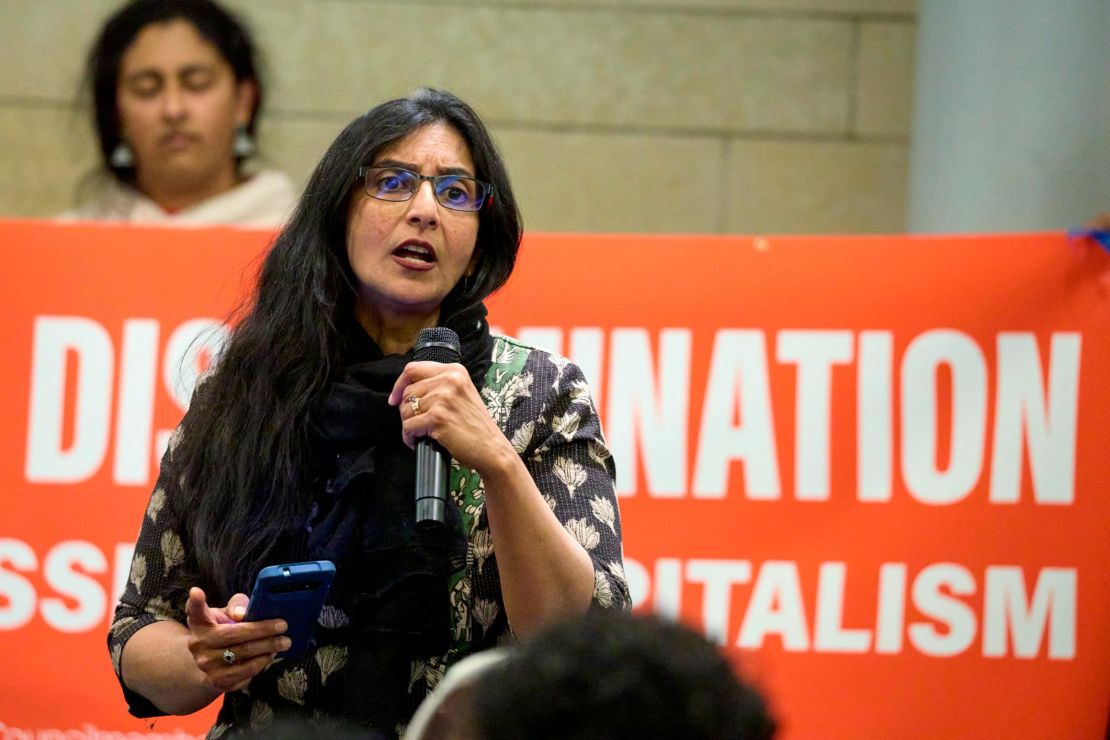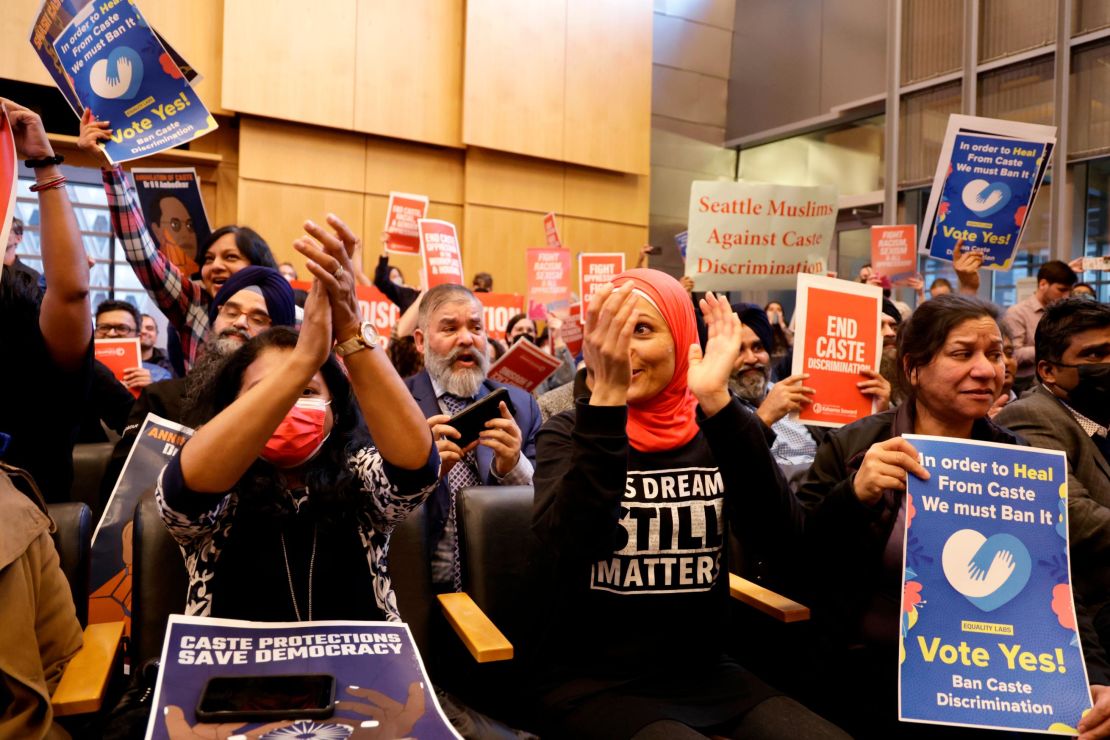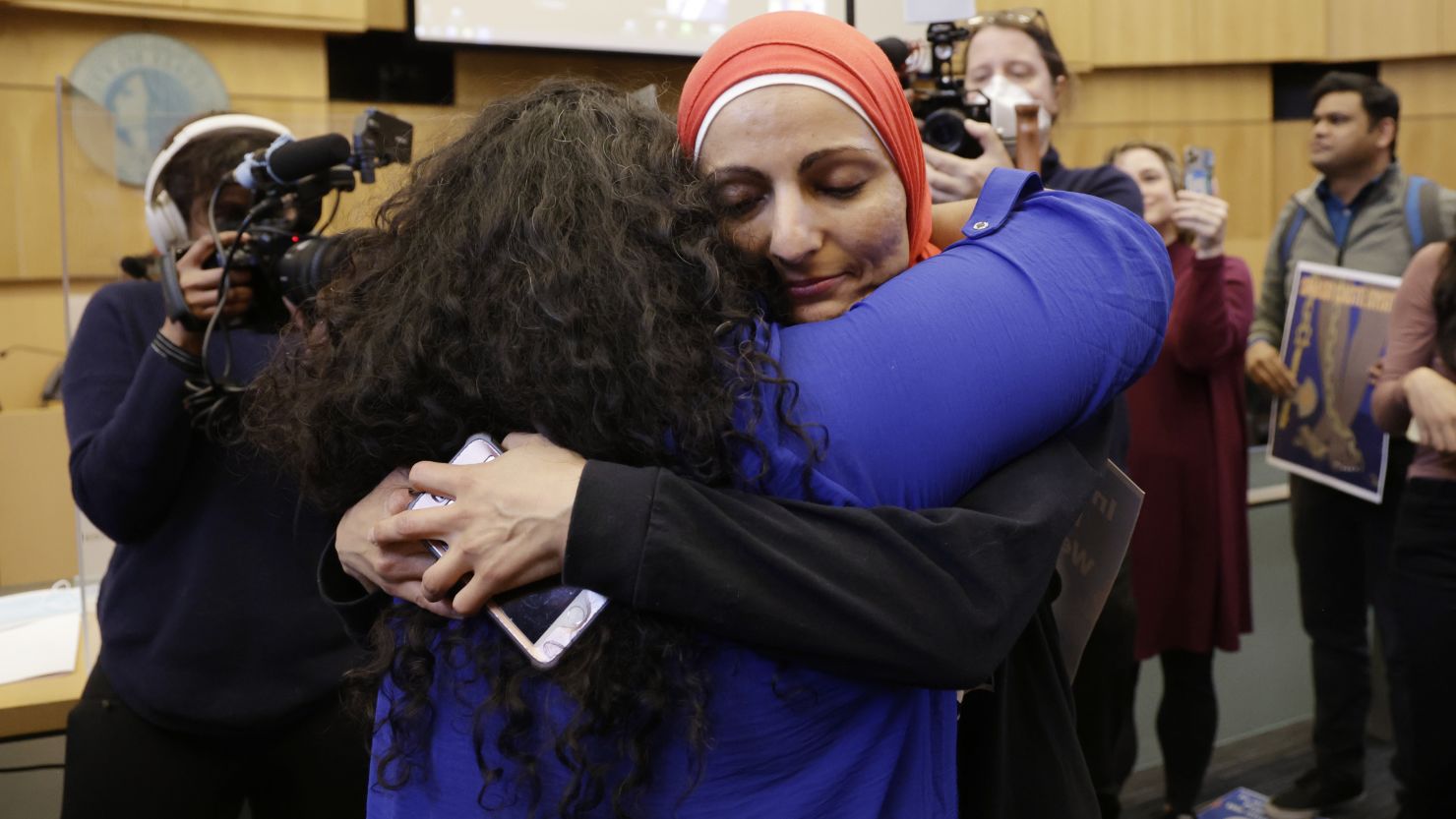Seattle is explicitly banning discrimination on the basis of caste, making it the first city in the US to take such a step.
The Seattle City Council approved an ordinance on Tuesday that amends the city’s municipal code to include caste as a protected class, alongside categories such as race, religion and gender identity. The law prohibits caste discrimination in employment, housing, public accommodations and other arenas, and allows caste-oppressed people in the city to lodge complaints of discrimination.
“It is a very simple question: Should discrimination based on caste be allowed to continue in Seattle?” Councilmember Kshama Sawant, who sponsored the ordinance, said during Tuesday’s city council meeting. “But while simple, it is also profound and historic.”

Casteism is an insidious form of discrimination that typically operates within South Asian communities. The caste system is a social hierarchy that divides people into rigid categories at birth, with those on the lowest rungs of the ladder – many of whom self-identify as Dalits – on the receiving end of slurs, discrimination and even violence because of their caste identities. Though the caste system originated in ancient India and is rooted in Hinduism, its contemporary form developed under centuries of Muslim and British rule, and it can now be found in virtually all South Asian countries and religious communities. After India attained independence, the country’s new constitution, authored by a Dalit legal scholar, formally banned caste discrimination, but caste-based prejudice remains a serious problem in modern India.
With South Asians comprising one of the nation’s fastest growing immigrant groups, caste bias and discrimination has the potential to become more pervasive in the US. But because caste-oppressed people in the United States are a minority within a minority, those who aren’t of South Asian origin may not recognize the subtle dynamics at play.
Already, the issue is making its way through the legal system: A California state court is set to hear a case from a former Cisco Systems employee who alleged he was discriminated against because of his caste.
Caste is especially relevant in Seattle, one of the nation’s largest tech hubs and home to major companies that employ large numbers of South Asian immigrants. In the week leading up to the vote, several people testified in public comment hearings and letters to the city council about how caste has manifested in area workplaces and other settings.
Supporters say the move will help advance awareness
The Seattle City Council approved the ordinance 6-1. Scores of people across race, religion and caste backgrounds registered to speak during the public comment period on Tuesday, with an overwhelming majority supporting the legislation. Supporters included dominant and oppressed caste workers, union members, progressive political organizers, Hindus, Sikhs and Muslims, among others.
“This was a win centuries in the making and it was really the fruition of many years of organizing in Seattle across racial and gender and worker lines,” said Thenmozhi Soundararajan, executive director of the Dalit advocacy organization Equality Labs. “It’s also proof that the South Asian community wants to heal from caste.”

Despite broad support, the ordinance faced some opposition by groups including Coalition of Hindus of North America, the Hindu American Foundation and the Vishva Hindu Parishad of America, who argued that the legislation unfairly singled out Hindus and contributed to harmful misconceptions of them.
Seattle’s ordinance is a key first step in raising awareness around caste discrimination, said Maya Kamble, a DC-based product manager at Amazon whose team is based in the city. Kamble, who is president of the anti-caste group Ambedkar Association of North America and uses an alias publicly, said caste-oppressed people in the US have so far had little recourse to address issues of bias and discrimination due to a lack of understanding and protections. Now, in Seattle, that has changed.
“At least we have a way to fight back,” she said.
Sawant said she hoped that other cities across the country will follow Seattle’s example and institute similar measures.
“If you are reading this and you marched in the Black Lives Matter movement or you desire to live in a society free of racism, racial discrimination, sexism or misogyny, then you should be paying attention,” she told CNN before Tuesday’s vote. “Because while caste oppression or discrimination does not affect all Americans, the way it manifests itself is no different than other types of oppression under capitalism.”
In recent years, several institutions of higher education have also made caste a protected status, including Brown University, the California State University system, Colby College and Brandeis University.


